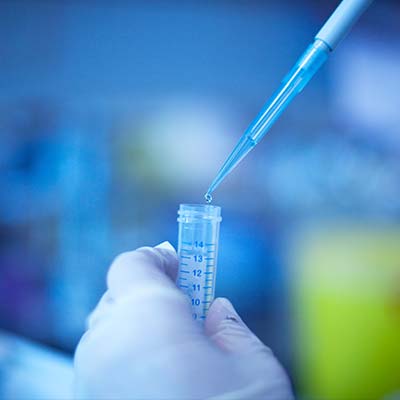
KOH Cheng Gee
Collaborator, Mechanobiology Institute, National University of Singapore
Associate Chair (Faculty), School of Biological Sciences, Nanyang Technological University
cgkoh@ntu.edu.sg
+65 6316 2854
SBS-03n-38
Nanyang Technological University
50 Nanyang Avenue
Singapore 639798
Research Program
The Cell-Matrix and Cell-Cell Mechanotransduction Group
Koh Cheng Gee
Collaborator
Research Areas
Cell signalling; Regulation of actin cytoskeleton; Rho GTPases, their effectors and regulators
Research Interests
Our laboratory is interested in the signal transduction events involving small GTPases of the Rho family, their regulators and effectors. These proteins play key roles in transducing extracellular stimuli into distinct responses including cell shape changes, cell motility, adhesion, cell division and phagocytosis. The emphasis of our current research is on the kinase PAK, its interacting protein PIX and a family of serine/ threonine phosphataes of the PP2C family, POPXs.
Biography
Dr Koh did her undergraduate studies at the Department of Chemistry at the National University of Singapore. After completing her Ph.D. with Sydney Brenner at the University of Cambridge, she returned to Singapore to work on Fugu genomics at the Institute of Molecular and Cell Biology. She later moved to Louis Lim’s laboratory at the same institute to study small GTPases-mediated cell signaling. In 2004, Dr Koh started her own laboratory at the School of Biological Sciences, Nanyang Technological University. Dr Koh is also a Principal Investigator at MBI.
Education
PhD University of Cambridge
Recent Publications
- Zhang S, Chong LH, Woon JYX, Chua TX, Cheruba E, Yip AK, Li H, Chiam K, and Koh C. Zyxin regulates embryonic stem cell fate by modulating mechanical and biochemical signaling interface. Commun Biol 2023; 6(1):62. [PMID: 36653484]
- Wong DCP, Pan CQ, Er SY, Thivakar T, Rachel TZY, Seah SH, Chua PJ, Jiang T, Chew TW, Chaudhuri PK, Mukherjee S, Salim A, Aye TA, Koh CG, Lim CT, Tan PH, Bay BH, Ridley AJ, and Low BC. The Scaffold RhoGAP Protein ARHGAP8/ BPGAP1 Synchronizes Rac and Rho Signaling to Facilitate Cell Migration. Mol Biol Cell 2023;:mbcE21030099. [PMID: 36598812]
- Yip AK, Zhang S, Chong LH, Cheruba E, Woon JYX, Chua TX, Goh CJH, Yang H, Tay CY, Koh C, and Chiam K. Zyxin Is Involved in Fibroblast Rigidity Sensing and Durotaxis. Front Cell Dev Biol 2021; 9:735298. [PMID: 34869319]
- Sathe SR, Jain D, Koh C, and Yim EKF. POPX2 phosphatase enhances topographical contact guidance for cell morphology and migration. Biomed Mater 2020;. [PMID: 33321483]
- Koon YL, Zhang S, Rahmat MB, Koh CG, and Chiam K. Enhanced Delta-Notch Lateral Inhibition Model Incorporating Intracellular Notch Heterogeneity and Tension-Dependent Rate of Delta-Notch Binding that Reproduces Sprouting Angiogenesis Patterns. Sci Rep 2018; 8(1):9519. [PMID: 29934586]
- Ou S, Tan M, Weng T, Li H, and Koh C. LIM kinase1 regulates mitotic centrosome integrity via its activity on dynein light intermediate chains. Open Biol 2018; 8(6). [PMID: 29925632]
- Weng T, and Koh C. POPX2 phosphatase regulates apoptosis through the TAK1-IKK-NF-κB pathway. Cell Death Dis 2017; 8(9):e3051. [PMID: 28906490]
- Zhang S, Weng T, Cheruba E, Guo T, Chan H, Sze SK, and Koh C. Phosphatase POPX2 Exhibits Dual Regulatory Functions in Cancer Metastasis. J. Proteome Res. 2016;. [PMID: 27976581]
- Hoon JL, Tan MH, and Koh C. The Regulation of Cellular Responses to Mechanical Cues by Rho GTPases. Cells 2016; 5(2). [PMID: 27058559]
- Khaw S, Min-Wen C, Koh C, Lim B, and Shyh-Chang N. Oocyte Factors Suppress Mitochondrial Polynucleotide Phosphorylase to Remodel the Metabolome and Enhance Reprogramming. Cell Rep 2015; 12(7):1080-8. [PMID: 26257174]
Lab Members
Seeking Research Fellow in the group of Prof. Alexander Bershadsky at the Mechanobiology Institute, NUS
The Mechanobiology Institute, NUS seeks to recruit a Research Fellow in the group of Prof. Alexander Bershadsky at the MBI, NUS.
Vaishnavi Rangaraj
Research Assistant, Holle Group
Liu Haoqiu
Research Fellow, Michelot Group
Seeking Postdoctoral Research Fellow for collaborative project between Dr. Yin Loon Lee and Prof. Alexander Bershadsky at the Mechanobiology Institute, NUS
The Mechanobiology Institute, NUS seeks to recruit a Postdoctoral Research Fellow for a collaborative project between Dr. Yin Loon Lee (A*STAR) and Prof. Alexander Bershadsky.
Seeking Postdoctoral Research Fellow in the group of Asst. Prof. Jennifer Young at the Mechanobiology Institute, NUS
The Mechanobiology Institute, NUS seeks to recruit a Postdoctoral Research Fellow to Asst. Prof. Jennifer Young's lab.
Super excited about the arrival of our optical coherence microscopy! Stay tuned for exciting data in the near future…
A huge thanks to Ling Wang from the Prevedel lab (EMBL Heidelberg) for helping us to set up this device!
Seeking Research Fellow in the Confinement Mechanobiology group at the Mechanobiology Institute, NUS
We are seeking to fill a Research Fellow (Postdoctoral Fellow) position in nanobiotechnology.
Biomaterial shows how ageing in the heart could be reversed
A new lab-grown material has revealed that some of the effects of ageing in the heart may be slowed and even reversed. The discovery could open the door to therapies that rejuvenate the heart by changing its cellular environment, rather than focusing on the heart cells themselves.Learn more
Rejuvenation of aged egg cells
MBI researchers collaborated with NUS Bia-Echo Asia Centre for Reproductive Longevity and Equality, based at the NUS Yong Loo Lin School of Medicine, to develop an innovative technique to significantly enhance the reproductive potential of aged oocytes, or immature egg cells, potentially paving the way for better outcomes of assisted reproductive technologies, such as in-vitro fertilisation (IVF), for older females. Learn more
Seeking Research Assistant in Cell Mechanics and Mechanobiology at the Mechanobiology Institute, NUS
We are seeking a Research Assistant in Cell Mechanics and Mechanobiology in the lab of Prof. Lim Chwee Teck at the Mechanobiology Institute, NUS.
Seeking Research Assistant in the labs of Dr. Natalie Dye and Dr. Alphée Michelot at the Mechanobiology Institute, NUS
We are seeking a Research Assistant to join the labs of Dr. Natalie Dye and Dr. Alphée Michelot at the Mechanobiology Institute, NUS.
Seeking Research Fellow in the lab of Prof. Rong Li at the Mechanobiology Institute, NUS
We are seeking a Research Fellow to join the lab of Prof. Rong Li at the Mechanobiology Institute, NUS












